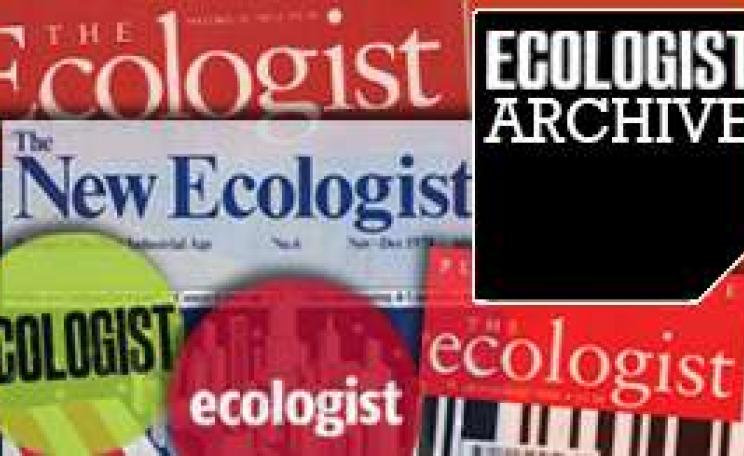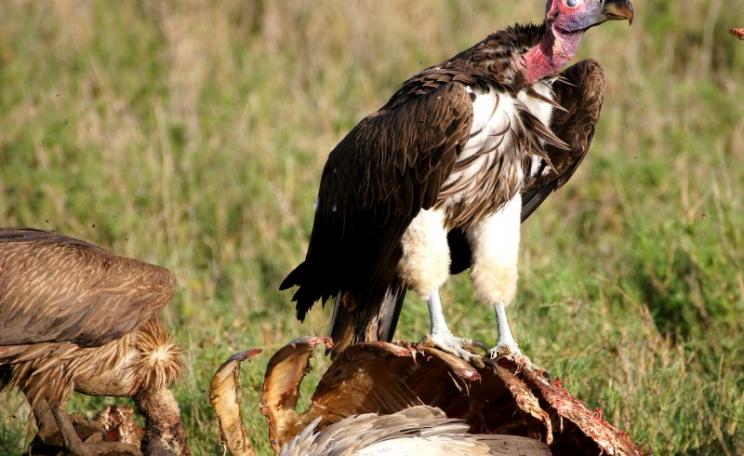There is no other continent that lives so much on the materials and energy of other continents than Europe. Even worse: the trend is upwards.
On 22 June, 100s of people came together in Brussels to mourn for Jo Cox. There was a minute of silence even in the Belgian Parliament. Jo wanted justice and fairness, for example for the people fleeing war in Syria. She stirred emotions far beyond her local constituency. Among those mourning were people who never heard of Jo before she was killed. It's her message of solidarity and justice that resonated beyond borders. And Jo is not alone.
Something similar happened after the 3 March murder of Berta Caceres, a local leader from Honduras. Foreign entities fund a destructive dam that the central government tries to heap on the locals. She tried to protect them from mayhem.
Berta's name was found on a military hitlist, in a country where over 100 environmental activists have been killed in the past five years. Nelson Garcia, a colleague of Berta's who assisted locals whose houses were bulldozed to make place for the dam, was killed two weeks later. Many organisations, such as RightsAction, have described in great detail the illegal land acquisitions, criminalisation of land rights defenders and bypassing of World Bank safeguard policies. Sadly enough, the conflict on the Zarca dam fits in a pattern that has no borders.
But this time, the killers miscalculated. In 2015, Berta won the prestigious Goldman Environmental Prize. By the time Nelson was killed, an international network of environmental groups had already started to organise dozens of demos at the Embassies of Honduras all over the world. This author was one of thousands who got in touch with the Dutch FMO Development bank manager that invested in the dam. The fact that this last sentence can now be written in the past tense is testimony to the power of the global environmental justice movement: after intense pressure FMO withdrew.
Every week, three more "Bertas" are killed. Ten years ago this figure was one a week. No parliament that I'm aware of held a minute of silence for any of them. Most murders go unnoticed beyond the local community, despite efforts by Global Witness to track and report them. Global Witness' world map of killed environmentalists in the 2010 to 2015 period is deep red in Latin America, South-Asia and South-East-Asia.
But there's hope that more Bertas are reaching our radars. As differing environmental justice struggles connect with each other, their power to ensure that environmental martyrs don't die for nothing is increasing. The rise of social media is no stranger to that trend and another new and mighty weapon supporting this growing movement and better global awareness is the Atlas of Environmental Justice. The EJAtlas is packed with qualitative information about almost 1800 environmental conflicts. The story they tell is like the story of climate change told through 1800 weather events. One hurricane doesn't prove climate change is real - but when you analyse 1800 hurricanes, there are things you can begin to tell about trends.
There is no other continent that lives so much on the materials and energy of other continents than Europe. Even worse: the trend is upwards.
What the scientists involved in the EJAtlas do is to look beyond the local particulars and investigate the root cause of all this. Political ecologists at the Autonomous University of Barcelona sifted through the 10,000 pages of information that the Atlas entails to distil a couple of key global trends that are reflected in these local conflicts. In the past decade I've spend most of my time translating their findings to a wider audience.
They speak of material flows, the metabolism of the global economy and the unequal ecological exchange between continents, causing all kinds of local conflicts. But cutting through their jargon, I think that one main conclusion boils down to this: as the easier material and energy reserves have been tapped already and as the need for new materials and energy only keeps rising, the battle lines of extraction are shifting to places where communities depend on the regional environment for their survival. The only structural solution to these rising conflicts is to reverse the trend and to dig, trade, use and dump a lot less stuff. Everything else is kicking the can down another road.
They've come up with a diarrhoea load of data but one statistic stands out: Between 1945 and today world trade multiplied by a factor of 17. What used to be a trickle is now a constant tsunami. But there's more to that figure. Professor Alf Hornborg from LUND University in Sweden has done some math to reveal that there is no other continent that lives so much on the materials and energy of other continents than Europe. Even worse: the trend is upwards. What started with a few raids on the Americas and later some massive cotton plantations in Pakistan to feed the mills of the English Midlands has grown into a massive stream of materials and energy flowing to Europe. Basically they're saying that from a global perspective, Europe is now a super-sized leach.
While France used to have over 100 uranium mines, they now import it from Niger and send the army when some rebel groups come too close for comfort. We'd rather import dirty Niger delta oil than lower our oil consumption. In Europe we now give billions in EU subsidies for cutting full-grown trees in US wetlands and the Amazon rainforest to get enough pellets in our mega bio-energy-plants in order to claim a climate policy and even a moral high ground.
The EU's sucking strategy is now falling apart even on it's own terms. Increased trade flows and the resulting economic growth have been good for Europe's higher income groups ... but the buying power of the lowest incomes in the UK has not increased in the past 30 years. It's precisely this group that just voted to leave the EU. It's also this income group that hates the neo-liberal EU project everywhere in the EU, from Poland to France and from Greece to Denmark. The neoliberal ideology ever increasing environmentally and socially destructive trade flows is bound to become a pretty damn big boomerang and at present it's heading at full speed to Europe's face.
Non-Europeans are engaged in life or death battles on the outer frontiers of this obsolete economic model. Europeans from both the left and right raise their voice (and middle finger) to the crown jewel that the neo-liberals are melting: CETA and TTIP. Regardless of the other problems these inter-continental "free trade" agreements have (such as using the lowest common denominator on environmental and social protections): it's designed to increase intercontinental trade. It's designed to double up in the spiral of violence to people and environment that these flows create.
The time for a great rethink of the economy has come and in the age of climate change and resource depletion, the only sensible and workable road is a radical shift to a much smaller, greener and fairer economy.
There's no point going back to the industrial age of the 20th century: we just no longer have the resources and atmospheric absorption capacity to do that. But ecological economists have macro-economic post-growth economic models that can work for all of humanity, on a planet that has its limits.
Maybe it's a good time for EU leaders to get their hands on a classic from Victor Hugo, from whom we remember the line that you can kill people, but you can't kill an idea whose time has come.
This Author:
Nick Meynen is one of The Ecologist New Voices contributors. He writes blogs and books http://www.epo.be/uitgeverij/boekinfo_auteur.php?isbn=9789064455803 on topics like environmental justice, globalization and human-nature relationships.
When he's not wandering in the activist universe and his Facebook page https://www.facebook.com/nick.meynen
is dead, he's probably walking in nature.
@nickmeynen







